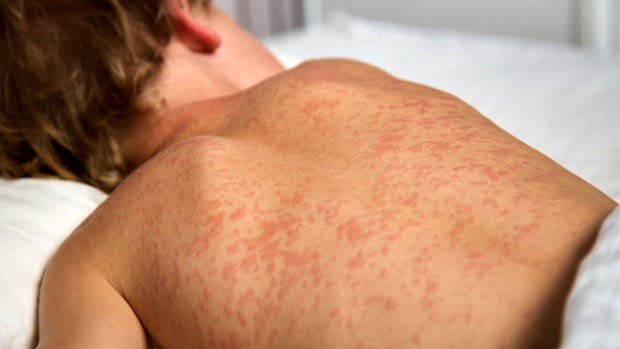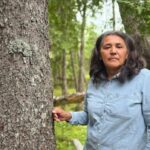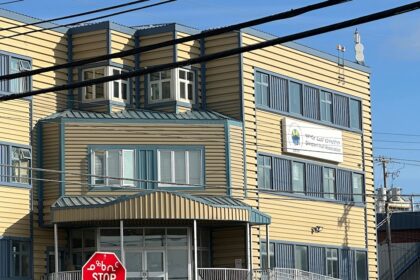PEI·NewThe province’s Chief Public Health Office has identified between four and eight infants who require medication to protect them against measles following two new, unrelated cases of measles on P.E.I.’We will try to make sure we get that arranged for them,’ says Dr. Heather MorrisonThinh Nguyen · CBC News · Posted: Jun 27, 2025 9:16 AM EDT | Last Updated: 14 minutes agoDr. Heather Morrison says a small number of infants have been identified as needing immunoglobulin treatment to temporarily protect them from measles. (Aaron Adetuyi/CBC)The province’s Chief Public Health Office has identified between four and eight infants who require medication to protect them against measles.On Thursday, the office confirmed two new, unrelated cases of measles on P.E.I., both linked to many public exposure sites.P.E.I.’s Chief Public Health Officer Dr. Heather Morrison said Friday that a small number of infants who will need intravenous immunoglobulin, or intramuscular immunoglobulin on some individuals, were identified overnight Thursday. The immunoglobulin can prevent or reduce the severity of an infection.”We will try to make sure we get that arranged for them, because we only have a certain number of days after the exposure in order to do that,” Morrison told CBC’s Island Morning.While most people on P.E.I. are protected, Morrison said children under one year old are at high risk because they have not yet received the measles vaccine. It’s part of the province’s childhood vaccine program, administered at 12 months and again at 18 months.Public exposure sites identifiedHealth officials have identified the following public exposure sites: R&A (RaceTrac) service station, 9967 Route 6, Stanley Bridge: Saturday, June 21, between 1 and 4 p.m. Charlottetown Bible Chapel, 35 Lincolnwood Dr., Charlottetown: Sunday, June 22, between 9 a.m. and 2 p.m.; and Sunday, June 22, between 6:30 and 9:30 p.m. HomeSense, 1-202 Buchanan Dr, Charlottetown: Sunday, June 22, between 6 and 8:30 p.m. Morell Co-op, 7690 St Peters Rd., Morell: Monday, June 23, between 10 a.m and 1 p.m. Adams Chiropractic, 100 Capital Dr., Charlottetown: Monday, June 23, between 4 and 6:30 p.m. Princess Auto, 15 Saint Dunstan St., Charlottetown: Monday, June 23, between 4:30 and 7:30 p.m. Ultramar Gas Station, 11302 St Peters Rd., Scotchfort: Monday, June 23, between 5 and 8 p.m. WestJet flight 3540 from Kamloops, B.C. to Calgary: Wednesday, June 25 (departed at 5:50 a.m.) West Jet flight 630 from Calgary to Charlottetown: Wednesday, June 25 (departed at approximately 8:50 a.m.; landed around 4 p.m.) Charlottetown Airport: Wednesday, June 25, from 4 to 6:30 p.m. Health officials ask that people reach out to the CPHO if they and/or a dependent were on the June 25 flights or at one of the exposure locations during the times specified, and any of the following apply: They are not protected against measles and are pregnant. They are under one year old. They are immunocompromised (even if they are vaccinated). Islanders can reach the Chief Public Health Office by emailing outbreak@ihis.org or calling 1-800-958-6400 to arrange for post-exposure treatment. People are asked to provide their full name, date of birth, contact information and location at which they were exposed. For these high-risk individuals that may have potentially been exposed, Morrison said they need to reach out as soon as possible as there’s only a certain window to offer immunoglobulin if they would be candidates.Anyone who is not immune to the disease from a past case or vaccine, and has been at one of the identified exposure locations, must stay away from public settings during the contagious stage, the CPHO said. The exclusion period begins five days after the last known exposure to measles and ends 16 days after the start of the exclusion period.Public settings include schools, childcare facilities, post-secondary institutions, workplaces and any other public or group environment. Current vaccine recommendationsThe measles vaccine is part of the province’s childhood vaccine program, administered at 12 months and again at 18 months.Symptoms of measles include fever, cough, sore eyes and a red rash that begins on the head and spreads down to the trunk and limbs. (CBC)The CPHO’s current recommendations for vaccination are as follows: Adults born before 1970 are considered to have acquired natural immunity and do not require the vaccine. Anyone travelling outside of Canada should receive one dose of measles vaccine. Adults born in or after 1970 who have neither had measles nor received two doses of vaccine should receive two doses. Regardless of age, students entering post-secondary education, health-care workers and military personnel should receive two doses if they have no evidence of having had measles and no documentation of having received two doses of the vaccine. SymptomsSymptoms of measles include fever, cough, sore eyes and a red rash that begins on the head and spreads down to the trunk and limbs. Serious complications can occur, such as blindness, viral meningitis or pneumonia — or even death, as was the case recently for two unvaccinated children in Texas.The measles, mumps and rubella vaccine is available at no cost through P.E.I.’s immunization program. (Giuliana Grillo de Lambarri/CBC)The measles virus spreads through the air when a person who is infected breathes, coughs, sneezes or talks. It may also spread through direct contact with droplets from the nose and throat of a person who is infected, according to the CPHO.The measles virus can stay in the air or on surfaces for up to two hours after a person who is infected has left the space. Someone with measles is contagious for four days before the rash is noticeable, and for up to four days after the rash occurs.If you or your family members develop symptoms described above from now until 21 days after being at one of the listed exposure sites on P.E.I.: Consult a health-care provider as soon as possible. Avoid being in contact with other people, specifically people considered at high risk: children under the age of 12 months, pregnant women and immunocompromised individuals. Wear a mask if you leave your household. Avoid taking public transportation to get to your medical appointment. Inform your health-care provider and health-care facility that you have been in contact with a measles case before presenting yourself for your appointment so that appropriate measures can be taken to prevent spreading the disease to others. With files from Island Morning
Up to 8 infants need protective medication after potential measles exposure, CPHO says










